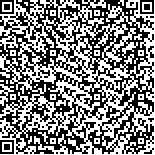陈颖,姚春雨,李娟,等.低频重复经颅磁刺激对孤独症谱系障碍儿童睡眠障碍及异常行为的影响[J].中华物理医学与康复杂志,2022,44(1):65-68
扫码阅读全文

|
| 低频重复经颅磁刺激对孤独症谱系障碍儿童睡眠障碍及异常行为的影响 |
|
| |
| DOI:10.3760/cma.j.issn.0254-1424.2022.01.013 |
| 中文关键词: 重复经颅磁刺激 孤独症谱系障碍 睡眠障碍 异常行为 儿童 |
| 英文关键词: Transcranial magnetic stimulation Autism Sleep disorders Abnormal behavior Children |
| 基金项目: |
|
| 摘要点击次数: 4929 |
| 全文下载次数: 7823 |
| 中文摘要: |
| 目的 观察低频重复经颅磁刺激(rTMS)对孤独症谱系障碍(ASD)儿童睡眠障碍及异常行为的影响。 方法 采用随机数字表法将40例ASD患儿分为观察组及对照组,每组20例。2组患儿均给予睡眠行为干预及个体化常规康复训练,观察组在此基础上辅以低频rTMS治疗,磁刺激靶区为左前额叶背外侧皮质区(DLPFC),刺激频率为1 Hz,每次治疗30 min,每天治疗1次,每周治疗5 d。于治疗前、治疗8周后分别采用孤独症行为检查量表(ABC量表)、儿童孤独症评定量表(CARS量表)及儿童睡眠习惯问卷表(CSHQ量表)对2组患儿进行疗效评定。 结果 治疗8周后2组患儿CARS、CSHQ评分及ABC总分均较治疗前明显改善(P<0.05),并且观察组CARS、CSHQ评分及ABC总分[分别为(32.63±4.52)分、(39.65±3.08)分和(74.55±14.67)分]亦显著优于对照组水平(P<0.05);治疗后2组患儿ABC量表感觉能力、交往能力、运动能力、语言能力及自我照顾能力评分均较治疗前明显下降(P<0.05),并且观察组感觉能力、交往能力、运动能力及语言能力评分[分别为(12.25±2.94)分、(15.45±2.64)分、(17.05±4.55)分和(13.45±2.83)分]亦显著优于对照组水平(P<0.05)。 结论 在常规干预基础上辅以低频rTMS能有效改善ASD患儿睡眠障碍,并纠正其异常行为模式,有助于疾病严重程度减轻。 |
| 英文摘要: |
| Objective To observe any effect of repetitive low-frequency transcranial magnetic stimulation (rTMS) on sleep disorders and abnormal behaviors of children on the autism spectrum. Methods Forty autistic children were randomly divided into an observation group and a control group, each of 20. Both groups were given sleep behavior training and individualized conventional rehabilitation training. Those in the observation group also received 30min of rTMS at 1Hz applied over the left dorsolateral prefrontal cortical area once a day, 5 days a week. Before and after 8 weeks of this treatment, both groups were evaluated using the Autism Behavior Checklist (ABC), the Child Autism Rating Scale (CARS) and the children′s Sleep Habit Questionnaire (CSHQ). Results The average CARS and CSHQ scores, as well as the total ABC score of both groups increased significantly over the 8 weeks, but the average CARS and CSHQ scores, as well as the total ABC score of the observation group were then significantly better than in the control group. After the treatment, the average ABC scores for sensory ability, communication ability, motor ability, and language ability were significantly lower than before the treatment for both groups, but the observation group′s averages were then significantly better than those of the control group. Conclusions Supplementing routine intervention with low-frequency rTMS can effectively improve the sleeping and correct the abnormal behavior patterns of autistic children. |
|
查看全文
查看/发表评论 下载PDF阅读器 |
| 关闭 |
|
|
|